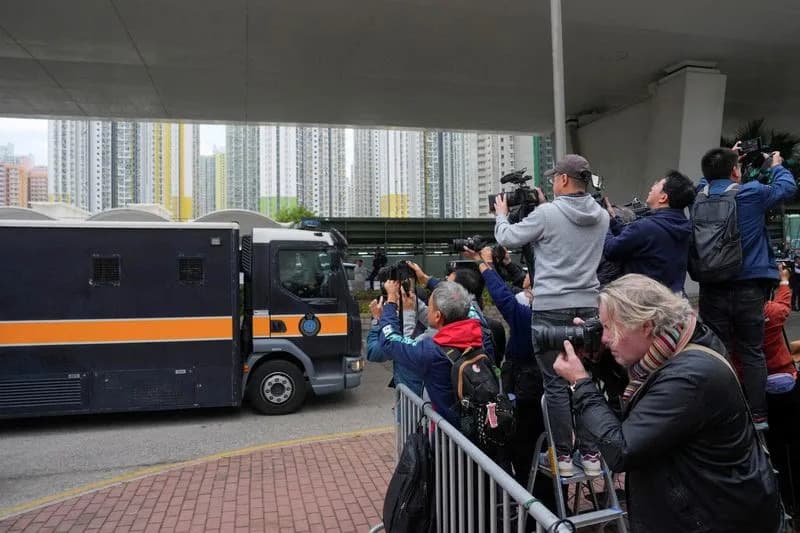About one-third of the first legislature selected under Beijing’s "patriots administering Hong Kong" policy will not seek re-election, reflecting frustration among some lawmakers who say the chamber has grown uniform and less tolerant of dissent since the 2020 national security law and the 2021 electoral overhaul. Supporters contend the legislature is more efficient — passing more bills than any cohort since 2004 — while critics warn transparency and accountability have declined. Public satisfaction is low and the 2021 poll saw a record 30% turnout; December’s race will again lack major pro-democracy parties.
Hong Kong Legislature an ‘Echo Chamber’ Four Years After Overhaul — One-Third Not Seeking Re-election

Hong Kong legislature an ‘echo chamber’ four years after overhaul
On the final working day of their four-year term, the first cohort of lawmakers chosen under Beijing’s "patriots administering Hong Kong" policy gathered for group photos — but roughly one in three said they will not contest December’s election. Among them is Tik Chi-yuen, a self-described non-establishment figure who says the legislative chamber has become more uniform and less tolerant of even mild dissent.
"It used to be that (the legislature) had the benefit of free expression... Now it is more uniform. There are multiple voices but they are not diverse enough," Tik said, comparing today’s atmosphere with his early experience as a rookie lawmaker in the 1990s. Several departing legislators similarly said attempts to reform the system from within have found limited space.
Rubber stamp or efficiency?
Critics argue the combination of the 2020 national security law and the 2021 electoral overhaul — which introduced security vetting and higher nomination thresholds — has reduced political pluralism and weakened oversight. An anonymous NGO-affiliated researcher told AFP that lawmakers have become "passive," asking far fewer questions and thereby diminishing transparency and accountability during budget and policy scrutiny.
"(Nowadays) a lot of the speeches have an echo chamber effect... The culture is monotonous, and those who are relatively lively have given up re-election," said Kenneth Chan, a political scientist at Hong Kong Baptist University.
Defenders of the changes say the legislature has gained efficiency and productivity. Veteran lawmaker Lo Wai-kwok praised the end of filibuster-style tactics used by some opposition figures in the 2010s, saying the council is now faster in reviewing government proposals and funds. Statistics show this cohort approved more bills than any since 2004.
Outgoing Legislative Council president Andrew Leung rejected the "rubber stamp" label, noting lawmakers submitted numerous comments and took part in approving a locally drafted national security law last year.
Public response and the outlook for December
Public satisfaction appears low. A local think tank’s September survey found just 30% of respondents satisfied with the legislature and 50% dissatisfied. Voter engagement also fell: the first election after the 2021 overhaul recorded a record-low turnout of about 30%.
The 2021 election brought in candidates with limited local political experience but strong state ties — often described as the "national team" — a trend observers expect to continue. With the Civic Party dissolved in 2023 and the Democratic Party winding down, December’s ballot is likely to again lack the major pro-democracy parties.
City leader John Lee recently criticised those who he said "intentionally distorted" changes to candidate line-ups and defended Beijing's involvement as an expression of care over electoral matters. Meanwhile, scholars warn that when all candidates are vetted to be "patriots," turnout figures may reflect the government’s ability to mobilise voters rather than the public’s political engagement.
What it means
As a quarter-century of political evolution in Hong Kong continues, the debate is stark: are institutional reforms delivering order and efficiency, or have they traded away the plurality and scrutiny that underpin public trust? The departing lawmakers and the public opinion signals suggest the question will remain central to perceptions of Hong Kong’s political future.
Help us improve.


































